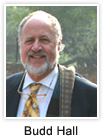 Professors Gloria Snively and Wanotst’a7 Lorna Williams have just published a the first of what will be two books on the Indigenous Science of a region of North western North America. This book, a towering achievement, is moreover available as an open access publication under a creative commons copyright. It is a powerful example of what knowledge democracy looks like in practice. Gloria Snively is a celebrated marine and science educator. Wanotst’a7 Lorna Williams, an internationally respected Lil’Wat scholar and former Canada Research Chair in Indigenous Learning and Knowledge. Both have been based at the University of Victoria, in Western Canada.
Professors Gloria Snively and Wanotst’a7 Lorna Williams have just published a the first of what will be two books on the Indigenous Science of a region of North western North America. This book, a towering achievement, is moreover available as an open access publication under a creative commons copyright. It is a powerful example of what knowledge democracy looks like in practice. Gloria Snively is a celebrated marine and science educator. Wanotst’a7 Lorna Williams, an internationally respected Lil’Wat scholar and former Canada Research Chair in Indigenous Learning and Knowledge. Both have been based at the University of Victoria, in Western Canada.
Why is this so important? For those of us working in community-based research, knowledge democracy, on issues of decolonizing higher education, on the science of the earth , We are familiar with the work of de Sousa Santos and the concept of epistemicide, the killing off of other knowledge systems by white European knowledge. But it is less clear how projects that recover and revitalize Indigenous knowledge for example can be carried out. Knowing Home grew out of an Indigenous Science (IS) research process that has been more than 14 years in the making. Key to the process was the involvement of younger Indigenous master’s students who, under the guidance of Professors Snively and Williams, undertook studies of IS that recovered Elder’s knowledge and community knowledge.
Knowing Home honours and restores Indigenous knowledge as a contemporary partner of Western science. It is not about replacing one hegemonic knowledge system with another, it is about finding a way for multiple knowledge systems to work together in the interests of all life on the planet. The title of the book makes that point, the Braiding of Indigenous Science with Western Science. Another chapter heading makes another powerful statement, Indigenous Science: Proven, Practical, Timeless. This book is designed to be used by science teachers and other educators in British Columbia schools but it has relevance to all educators seeking new approaches to curriculum in Indigenous ways of knowing. The public school system has mandated that Indigenous Science will now be part of the curriculum for secondary school students. But the importance of this project goes far beyond even this critical advance. The way in which this book has been respectfully created, giving visibility to many younger Indigenous scholars is also useful to anyone seeking ways of building knowledge democracy.
We are living in an era when the very concept of knowing home has become difficult. We are all expected to be contributors to some kind of global assembly line of products overseen by distant owners who grow increasingly glutinous by their wealth. We have lost the sense of home to such a degree that the ability of our planet support even our own lives as human beings is at risk. So it is in that sense as well that work of this nature must proliferate in many more parts of the world. In the meantime, let us celebrate this breakthrough; congratulate the editors, the former students, the many Indigenous and non-Indigenous supporters and allies for a luminescent volume that is also by grace of their vision and the internet available throughout the world for free! If you wish a hard copy you can have one printed from the file where you live including for those in Victoria BC at the UVic bookstore.
https://pressbooks.bccampus.ca/knowinghome/
Snively, G and Williams, Wanosts’a7 (Eds.) (2016) Knowing Home: Braiding Indigenous Science with Western Science, Victoria, BC: University of Victoria is used under a CC-BY-NC-SA 4.0 International License, except with otherwise noted




